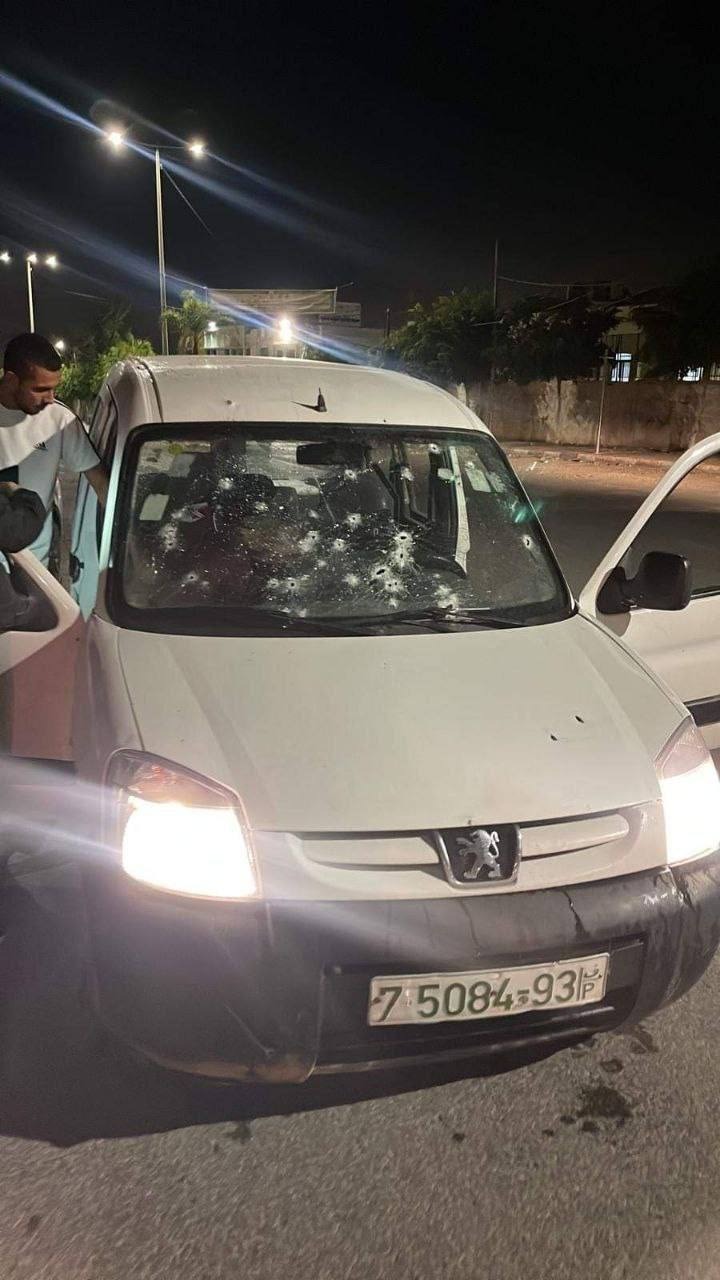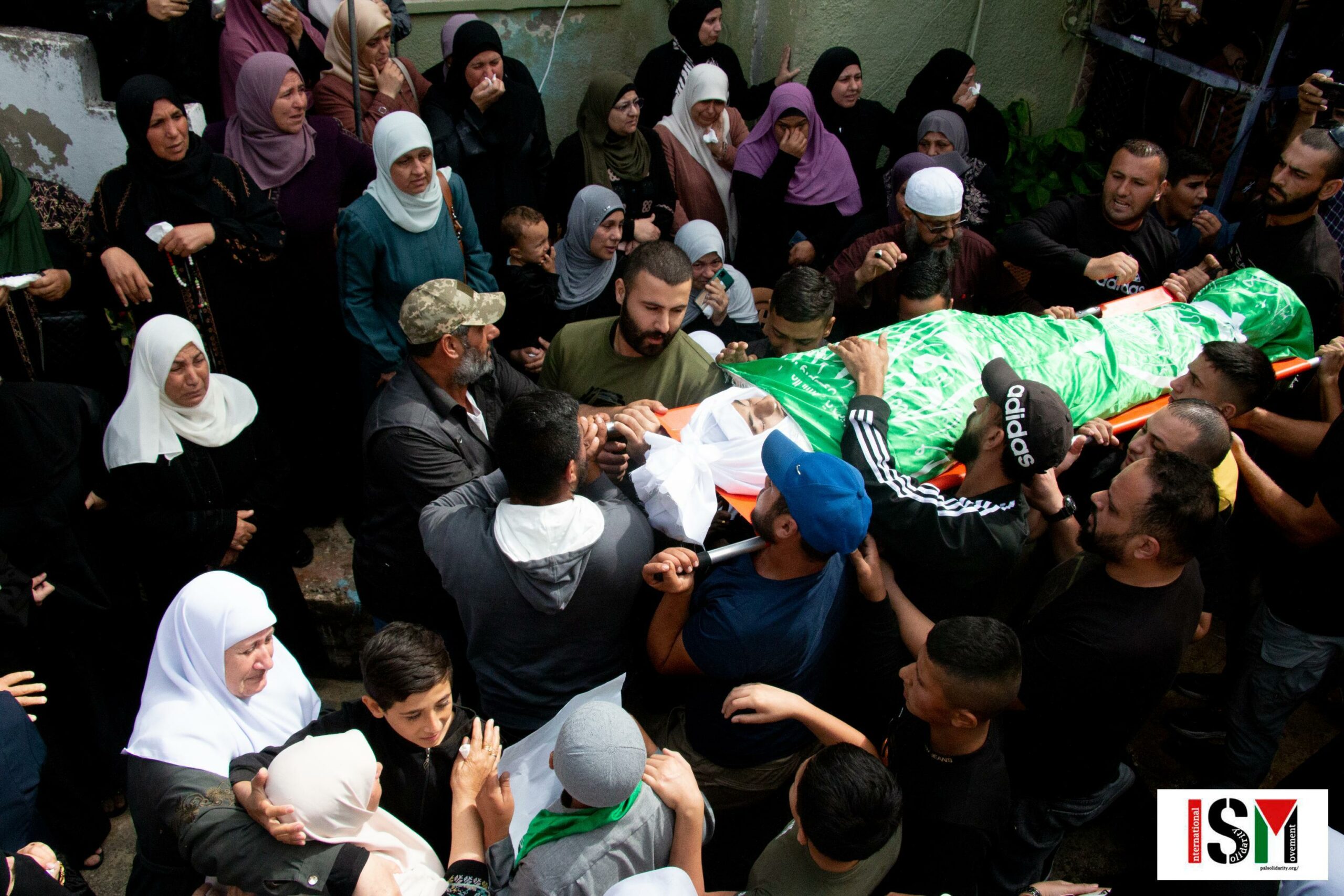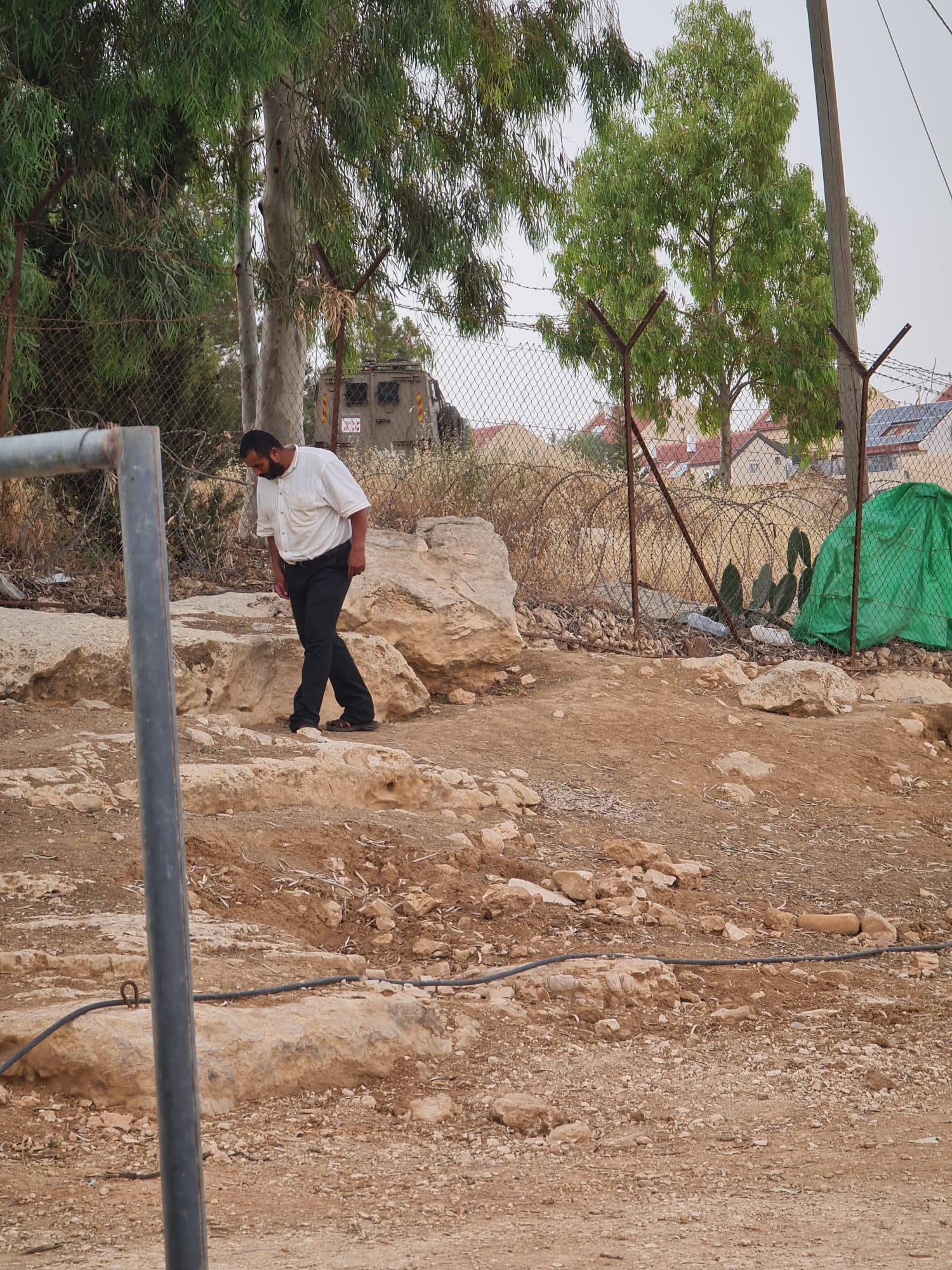Category: Journals
-
Israeli snipers target civilians, kill father of 3-year-old in Tulkarm
13 October, 2023 | International Solidarity Movement | Tulkarm By Diana Khwaelid On the evening of Friday, October 13th, 2023, Israeli snipers opened direct live fire on a white civilian car while it was passing near the Sanaoz military checkpoint, in Tulkarm city. Ahmed Abed, who was one of the two passengers in the…
-
Childhood is being killed in Palestine
15 October, 2023 | International Solidarity Movement | Tulkarm By Diana Khwaelid The 16-year-old martyr Mohammed Adwan was fatally wounded by a live bullet fired by an Israeli soldier while participating in a demonstration in solidarity with Gaza that took place last Friday, 13th of October, 2023. Mohammed answered the call to participate in a…
-
Revenge attacks in Masafer Yatta
16 October, 2023 | International Solidarity Movement | Masafer Yatta In the week since Israel began its onslaught on Gaza, soldiers and settlers have bulldozed homes, carried out night raids and attacked Palestinians across the Masafer Yatta region. Occupation forces have taken advantage of the state of emergency to escalate their violence and displacement…



